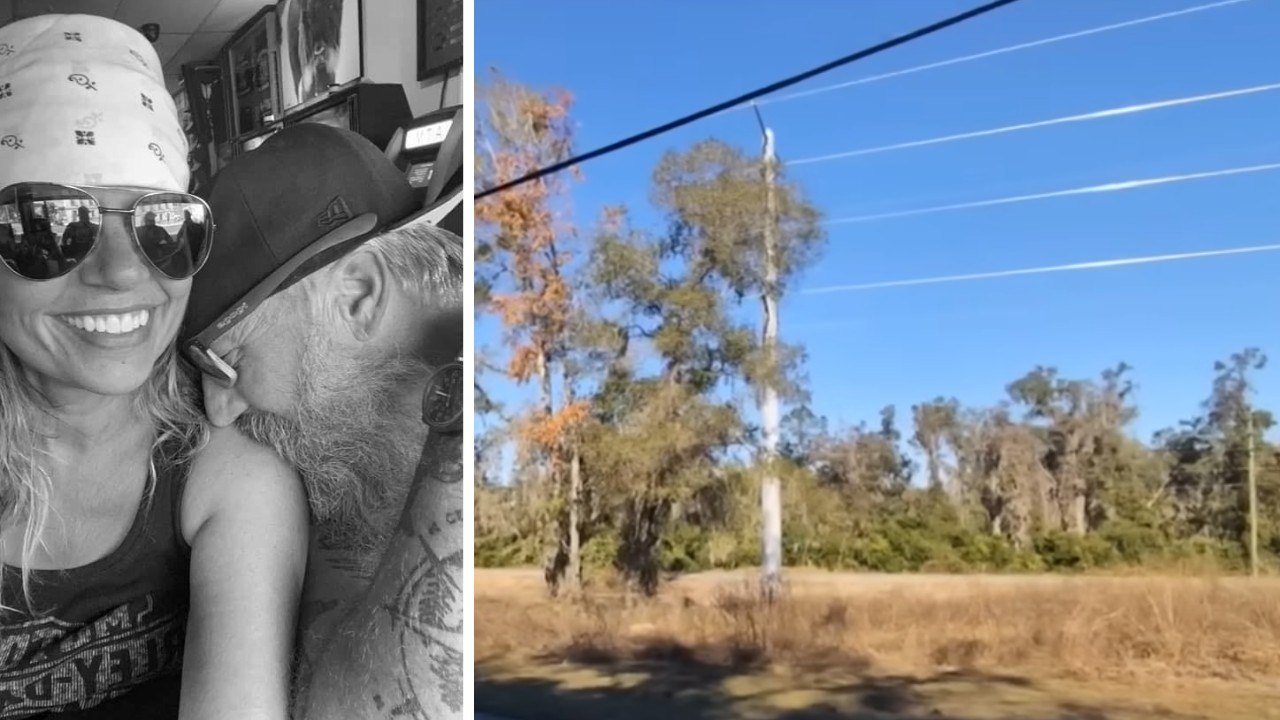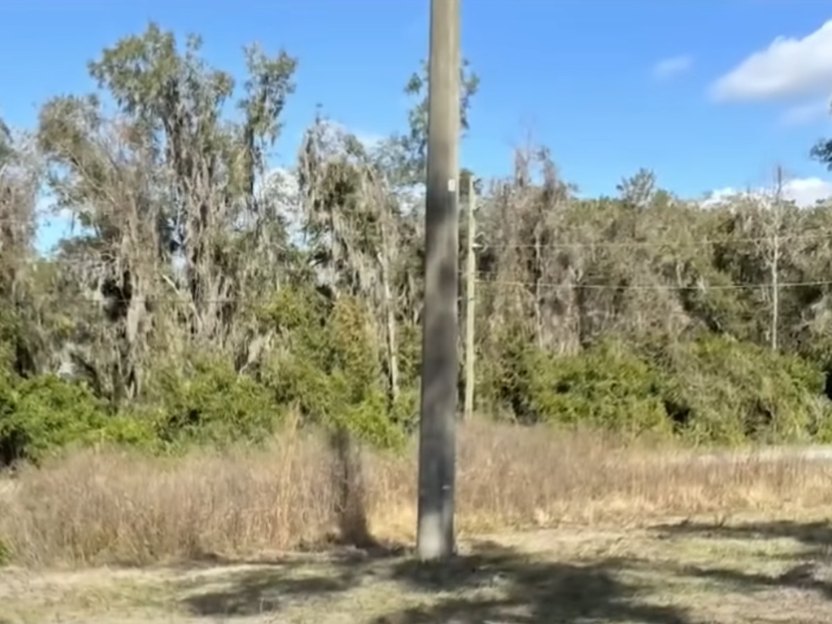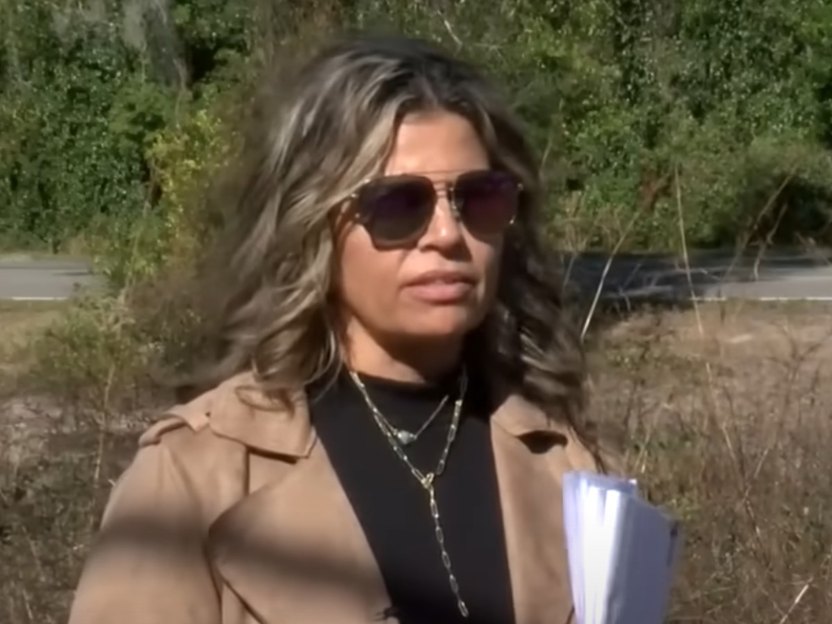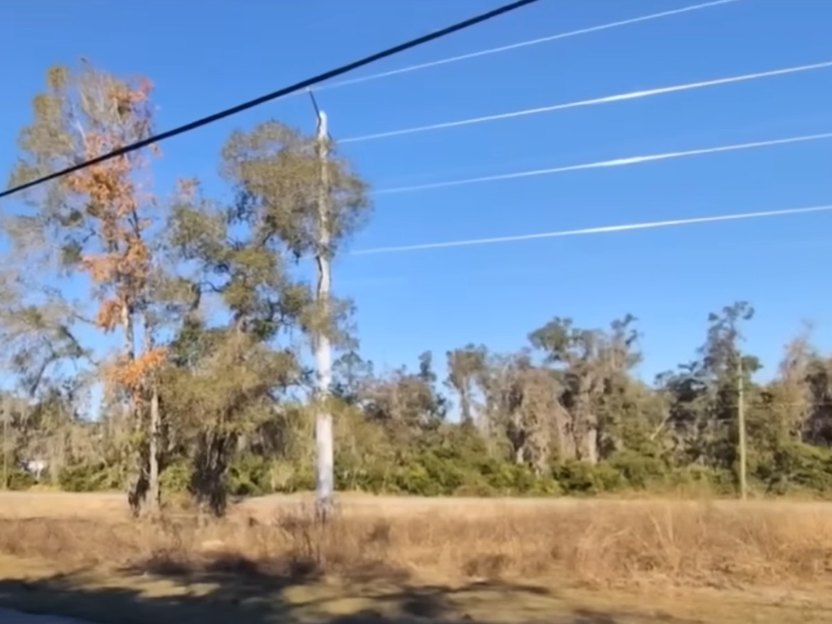Couple’s Dream of Building Family Home on $17,500 Florida Land Is Destroyed Because of a Utility Pole


Facebook; WFLA
A couple who purchased a $17,500 plot of land in Florida where they planned to build their perfect home have revealed how that dream swiftly turned into a nightmare as a result of a seemingly innocent utility pole—and a little-known regulation that prohibits any structure from being erected near it.
Donna and Rion Hartl had made big plans to relocate from North Dakota to Brooksville, FL, and were busy designing the house that they planned to build there. Then a neighbor informed them of a long-standing easement on the land with Duke Energy, which prevents construction near the utility pole.
The couple were stunned by the news—particularly as they believed they had done their due diligence before committing to buying the plot, confirming that the land was zoned for both residential and agricultural use.
But now, the land is effectively useless to them, which is a bitter pill to swallow, Donna says. They had been so confident that they had found the perfect spot for their home, working with professionals to ensure that it fit all of their specifications with regard to privacy and building potential.
“While visiting family in December of 2023, we signed up with a [real estate agent] and went and looked at properties and we came to this gorgeous lot by a state forest,” she tells Realtor.com®. “They were like, ‘This is it, agriculture and residential.’ I could have chickens if I wanted. I trusted the professionals involved because I’ve been successful in the past.”


WFLA
After their cash offer for the land was accepted, Donna and Rion spent the following year selling their North Dakota home—and finalizing plans for the two-bedroom barn that they had hoped to build on their newly purchased Florida plot.
They carefully thought out every detail, from the basic structure of the property to the layout of the garden that they dreamed of tending. But when they paid a visit to the land to visualize those plans, they were dealt a horrifying blow by their future neighbor, who voiced his surprise that the pair had even made it to the planning stage.
“I don’t know how you got this far,” he told them. “Duke Energy around the corner has set up a plant. And this property is unbuildable. You’ll never be able to build here.”
The neighbor then pointed out the utility pole and informed them of the easement that prevents any building from being erected near it, leaving Donna and Rion flabbergasted.
They immediately began investigating their neighbor’s claims—only to discover that their new plot does in fact have a utility easement dating to 1955, which prohibits any construction within 100 feet of the utility pole.
That easement left them with just 600 square feet of usable land.
Determined to find a solution, they measured the space again and again in a bid to come up with a workaround, she says.
“My husband’s a carpenter, so with our wheel counter, stakes and string, and spray paint we measured,” she says. “I even called the survey company and asked them to come out and restate my lines. And they did. And we counted again. And yeah, there’s nothing, You cannot build on that property.”
Still, they refused to give up, so they put in a call to Duke Energy in the hopes that the company would work with them on a solution. Instead, the rep who handles the property simply sent them a copy of the 1955 easement, which was filed with Nando County and states that only a fence and citrus trees can be placed near the pole. No structures whatsoever.

WFLA

WFLA
“That left us with nothing,” Donna shares. The pair even considered moving ahead with the tiny plot they were left with. But they also hit a wall when they realized that their septic system would have to be installed far away from the home to meet the rules of the easement.
To make matters worse, after they informed the county of their dilemma, the value of their land was reduced to just $6,691. But the couple still owes property taxes on the plot—and are now mired in a legal battle to try to reclaim their original purchase money back.
“There are so many twists and turns to this, and if I can help educate anybody or have anybody avoid this, I will,” Donna says. “I did file an official claim with the attorney State General’s office and the Florida Department Professional Business Department.”
Furthermore, the couple have accused the seller’s broker of failing to disclose the easement in the property survey and claim that the surveyor involved in the purchase process has a history of complaints for inaccurate surveys.
The survey company in question, Nexgen Surveying LLC, and its licensed surveyor, Clyde McNeal, had agreed to pay a $5,000 settlement over five other cases involving inaccurate surveys.
For now, Donna and Rion are left homeless—having sold their property in North Dakota and moved into a camper in what they thought would be a temporary living solution while they built their home.
“I’m now stuck paying $4,000 staying in an RV park,” Donna reveals. They were recently forced to upgrade their camper to provide a more permanent accommodation.
“Someone said we could fence our property, which is OK by Duke Energy and try to zone for open storage, commercial license, or zoning, and see if we can just do boat and RVs, private boat and RV storage on the property to at least make some sort of money.”
Categories
Recent Posts











"My job is to find and attract mastery-based agents to the office, protect the culture, and make sure everyone is happy! "
1637 Racetrack Rd # 100, Johns, FL, 32259, United States
